No Results Found
The page you requested could not be found. Try refining your search, or use the navigation above to locate the post.
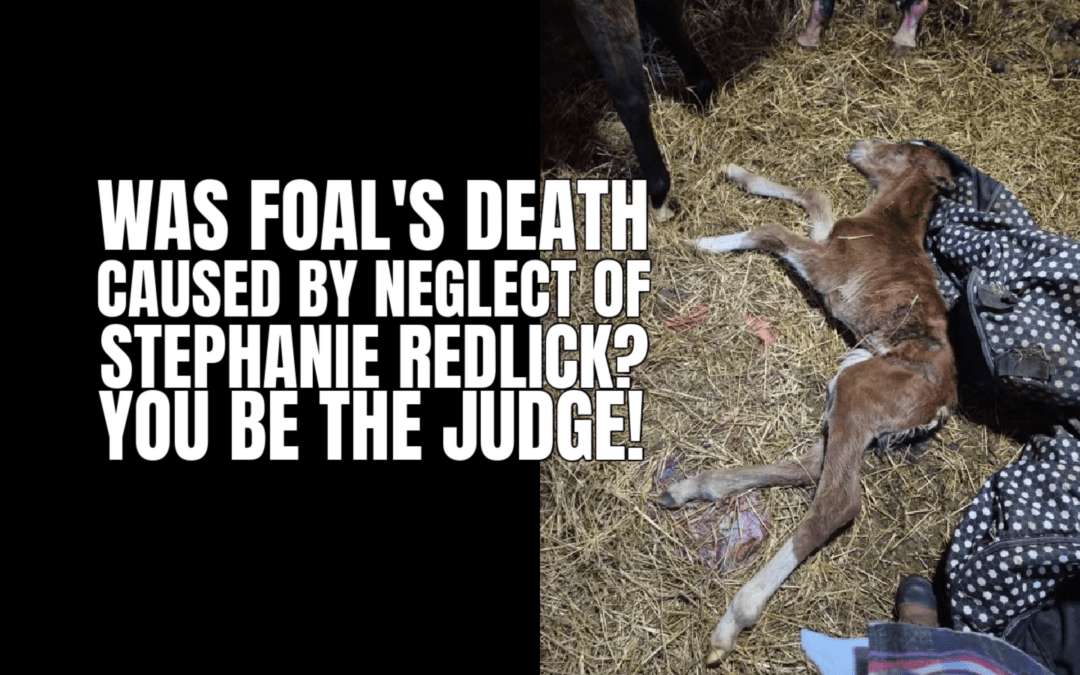
On Sunday, February 2, 2025, at 4:30 pm I was called by my second cousin’s wife, Dianne Beleskey to ask if I could help a young lady whose mare had given birth the night before.
Dianne works at a gas station close to a property that Stephanie Redlick leases and Stephanie came into the gas station to get some water for the mare.
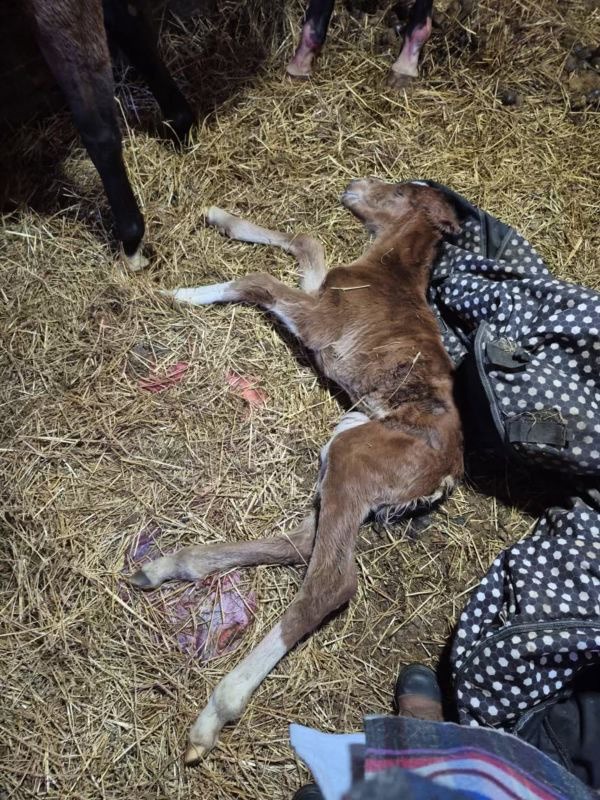
Stephanie Redlick told Dianne the foal was born during the night in a small uninsulated barn. The outside temperature was minus 18 Celsius. (Minus 26 with the wind chill factor.)
The newborn somehow got hung up over a chain that goes from a gate to a post at the end of the stall and the foal was stuck there until Stephanie - who does not live on the property - arrived the next day.
Once freed from the gate the foal's back legs were stiff.
I arrived at approximately 6 pm.
When I went into the small barn, which is more of a shed, I saw the mom and her foal.
The stall had about 3 feet of manure in it and the mare was eating hay that was also her bedding.
The baby was uncovered and cold. I immediately got a bottle from Stephanie, fed the foal and asked Stephanie to milk the mother and get more milk to feed the filly.
I covered the foal in blankets and rubbed her.
I squeezed her back legs and was happy to get a response to the pressure.
I lifted her up and she was putting some weight on her back legs but she was not strong enough to keep standing on her own.
I laid her back down and fed her again.
She had a vigorous appetite.
I told Stephanie that the mare and foal needed to go to the Ontario Veterinary College at the University of Guelph and that I would arrange for transportation.
She said she couldn’t afford trailering, so I said I would pay for it.
Stephanie’s mother was there as well. I told both of them that they must stay with the baby all night feeding her, keeping her warm and allowing her to sleep between feedings.
I warned them that she would die if they did not do as I asked.
They both agreed to stay all night in their vehicle and care for the foal until I picked her up in the morning.
I received a text from Stephanie around 6:15 am saying she just went back to Toronto (an hour away from the foal) to nap and that I could load her and take her.
I said she had to be present as I didn't want to later be accused of stealing her.
She then said she had to take her dad to the hospital and would not be able to get back to the barn till later.
I asked her when the foal was last fed. She said 7:15 a.m. which didn't make sense as she sent me a text at 6:15 a.m. that she was an hour away napping - and wouldn't be able to come to the property until later in the morning. She didn't get to the barn until after 9 a.m.
I looked after my horses and then headed over to the property Stephanie leases to wait for Stephanie and to feed the foal while I waited.
When I got there I could see the baby half covered with the blankets and she had digging marks all around her, made by the mother trying to get her up.
The foal was dead.
Stephanie did not stay the night and texted Dianne during the night to say she didn’t stay because she was too tired.
When Stephanie arrived, I looked at her and told her the foal was dead.
I asked her if she stayed all night and she swore she did and said she fed her every twenty minutes and rubbed her all night to keep her warm.
That didn't make sense based on what she'd texted Dianne Beleskey.
I am including a screenshot (below) of the message Stephanie sent to Dianne on Sunday evening February 2, stating that she'd left.
Stephanie did not appear upset in any way, she Just wanted to know how to dispose of the body. I told her to call a dead stock company but instead after 2 days of the dead foal lying in the stall with the mother, she dragged it to the woods for coyotes to eat.
I would also like to note that inside the "barn" any water buckets were frozen solid and the outside water troughs were empty.
I am haunted by this situation.
Had I known what I was dealing with I would have stayed.
I’m certain the foal would have lived.
At that point, I vowed that this beautiful foal's death would not be in vain and that I would do anything and everything I could to stop Stephanie Redlick from inflicting such cruelty on any other trusting beautiful soul.
Horses only have us to protect them and now after a week of endless phone calls and police visits I am frustrated that it feels like my complaints and concerns are falling on deaf ears.
Earlier, she had assured Jim Horne that she would stay with the newborn foal throughout the night, ensuring she was fed every twenty minutes and kept warm.
Jim had emphasized that if Stephanie didn’t stay, the foal—who was too weak to stand and unable to nurse from her mother—would not survive.

Despite this, Stephanie appears to have left the barn around 11 PM, possibly even earlier. Given that she lives an hour away from where the foal was, it seems unlikely that she kept her promise.
As a result, the helpless foal was left alone in the freezing barn. By the time Jim arrived to take her to the vet, the foal was dead.
We spoke with Summer Secord and her mother, Crystal Mitchell, after Jim Horne reached out to them regarding the poor condition of the horses - along with a lack of water and feed - he had seen.
Crystal then began communicating with Stephanie Redlick, and they were eventually able to visit the property mentioned in the article above.
After some discussion, they convinced Stephanie, the owner of approximately 17 horses, to surrender 4 into their care.

When asked how many horses she had, Stephanie Redlick's response:
17
Most of them are registered thoroughbreds , but those can't leave their bred and owned by my father and I.
Ones I've rescued i can let go
Except the good ones we'd need money for.
Ranging from 15-80K.
Farm horses take for free of course:)
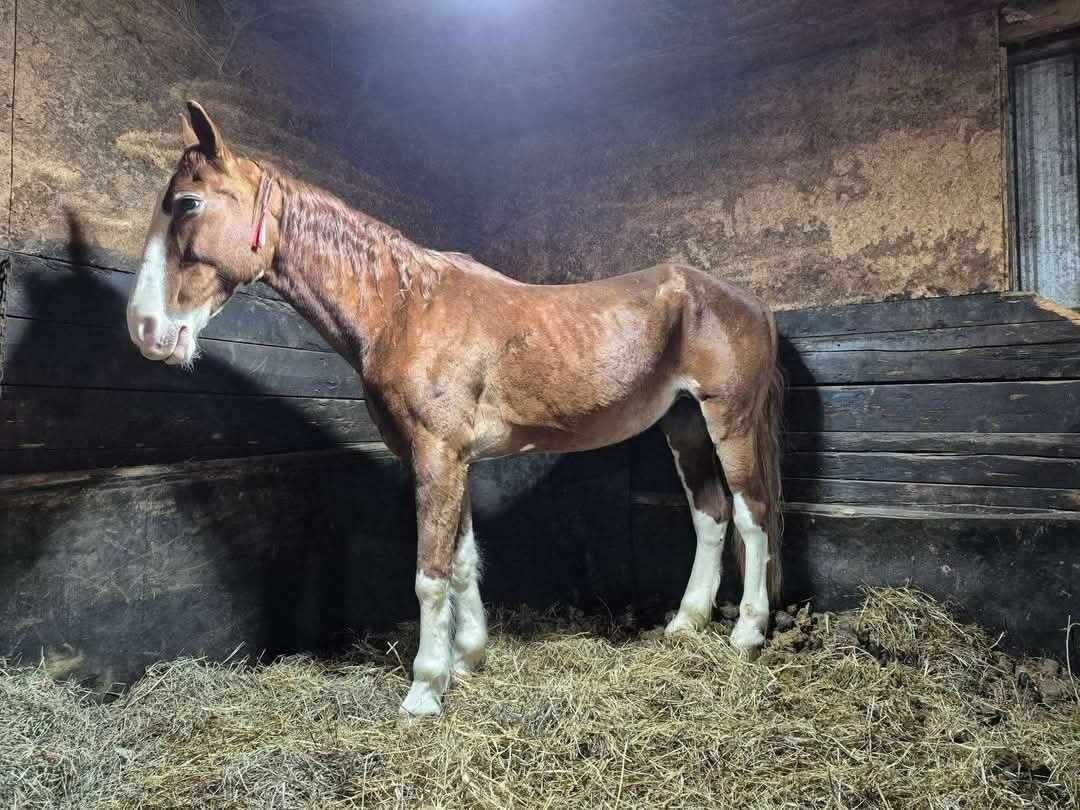
“Except the good ones we’d need money for. Ranging from 15-80K.” – Stephanie Redlick
Again, we say, you be the judge. Does this look like a healthy horse who is receiving quality care? Please note the water buckets are blocks of ice, the “bedding” is a foot or more of manure, this poor mare is skin and bones and has sores. AND yes, she along with 12 others remains in the “care” of Stephanie Redlick who was not willing to relinquish her. (Stephanie reportedly stated she was going to get $13,000 for her.)
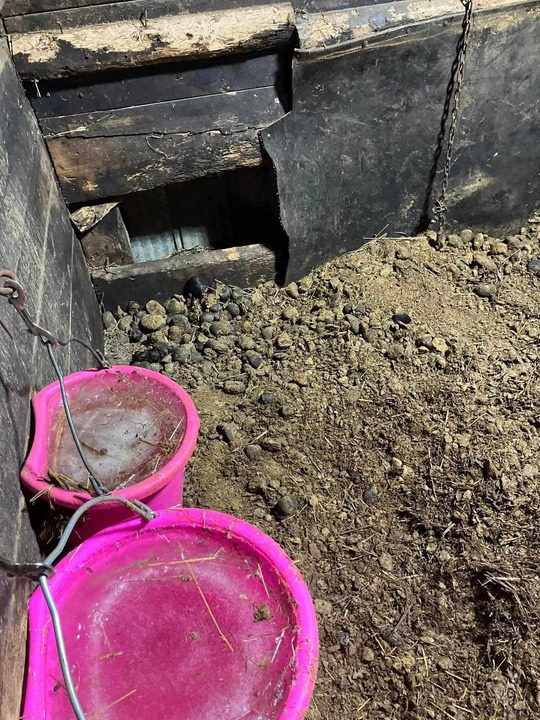

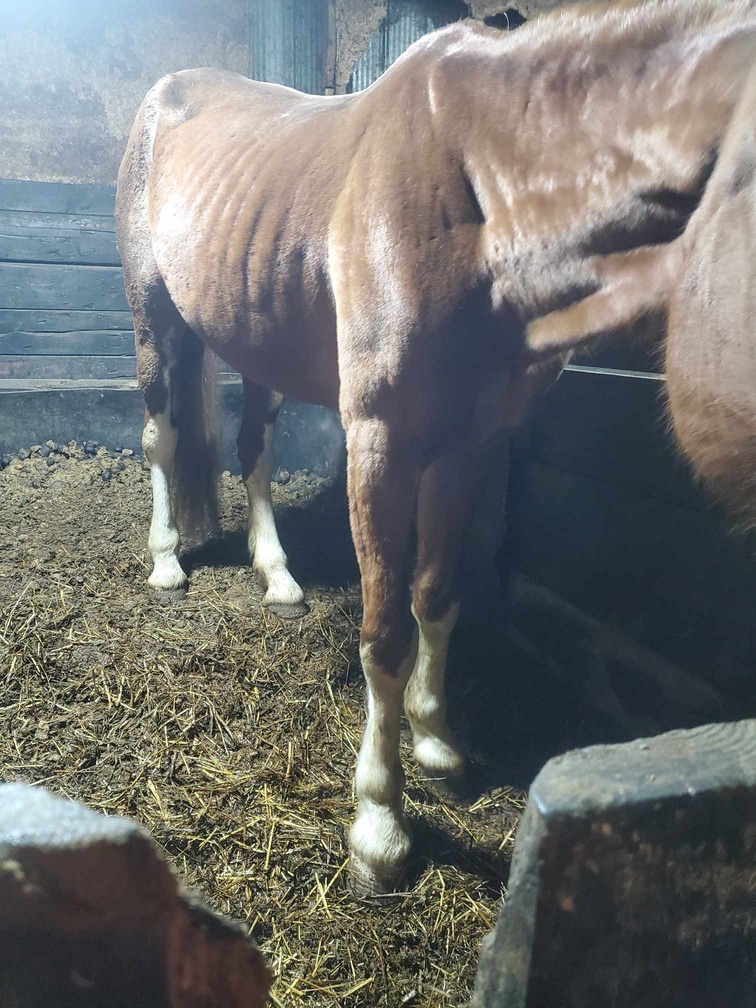

The team at https://horserescuefund.org has begun raising funds to support the Mitchell family in caring for the 4 emaciated horses they convinced Stephanie Redlick to relinquish.
[UPDATE Feb. 17, 2025: Despite a carefully planned and meticulously followed treatment protocol one of the four -- Seattle Sunrise -- was euthanized on the advice of a veterinarian.]
Providing these horses with veterinary care, prescriptions, specialized nutrition and farrier services has already been costly.
Horse Rescue Fund | 2467863 Alberta Society
is a registered foundation at the federal level with the
Canada Revenue Agency and as such, can issue receipts for donations.
You can confirm HRF's official status here.
Business/Registration number: 798022307 RR 0001
Contact members of the press, especially those who have a history of writing about animal welfare-related cases. Share this link - https://banhorseslaughter.com/stephanie-redlick -- it's been set up specifically to not only raise funds but also awareness with the public and the press.
Share our posts and website on your social media accounts and forward emails. What's that? You're not on our email list? Scroll down.
Pictures and videos on this page are courtesy of Summer Secord, Crystal Mitchell and Celia Carletti.
Press contact: marie@banhorseslaughter.com or phone: 250 801 8231
The page you requested could not be found. Try refining your search, or use the navigation above to locate the post.
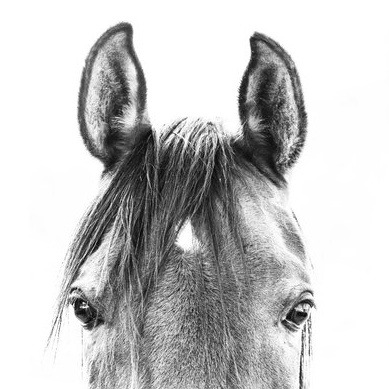

We spoke with Summer Secord and her mother, Crystal Mitchell after Jim Horne reached out to them regarding a lack of care that resulted in the death of a foal and the poor condition of horses in the ‘care’ of Stephanie Redlick – along with a lack of water and feed – he had seen. [Read about Jim’s experience here.]
Stephanie Redlick relinquished 4 horses of 17 she owned and was holding on a leased property in Oro-Medonte, Ontario, Canada to Summer Secord and Crystal Mitchell. We are grateful that Summer, Crystal along with Celia Carletti have carefully documented what they witnessed at the property and the condition each of the horses were in when relinquished.
This situation highlights both the cruelty some humans are capable of and the compassion of those who choose to step up, take action and show kindness.
P.S. It’s important to note that 13 horses remain in the ‘care’ of Stephanie Redlick. Please scroll down for how you can help remedy this situation.
The following pictures are of one of four horses relinquished to Summer Secord and Crystal Mitchell by Stephanie Redlick.
Standardbred Pureform Olympia began her racing career in British Columbia and finished in Ontario. Records show she was run through the Olex Horse Sales Auction in April of 2024 after her 2024 foal died.
Sadly she ended up in the hands of Stephanie Redlick who had the following to say about her…

Pureform Olympia- 17 year old standardbred mare. DSLD, Will most likely need to be Euthanized i can’t bring myself to doing it… maybe not but I’m pretty sure we all agreed haven awaits her.
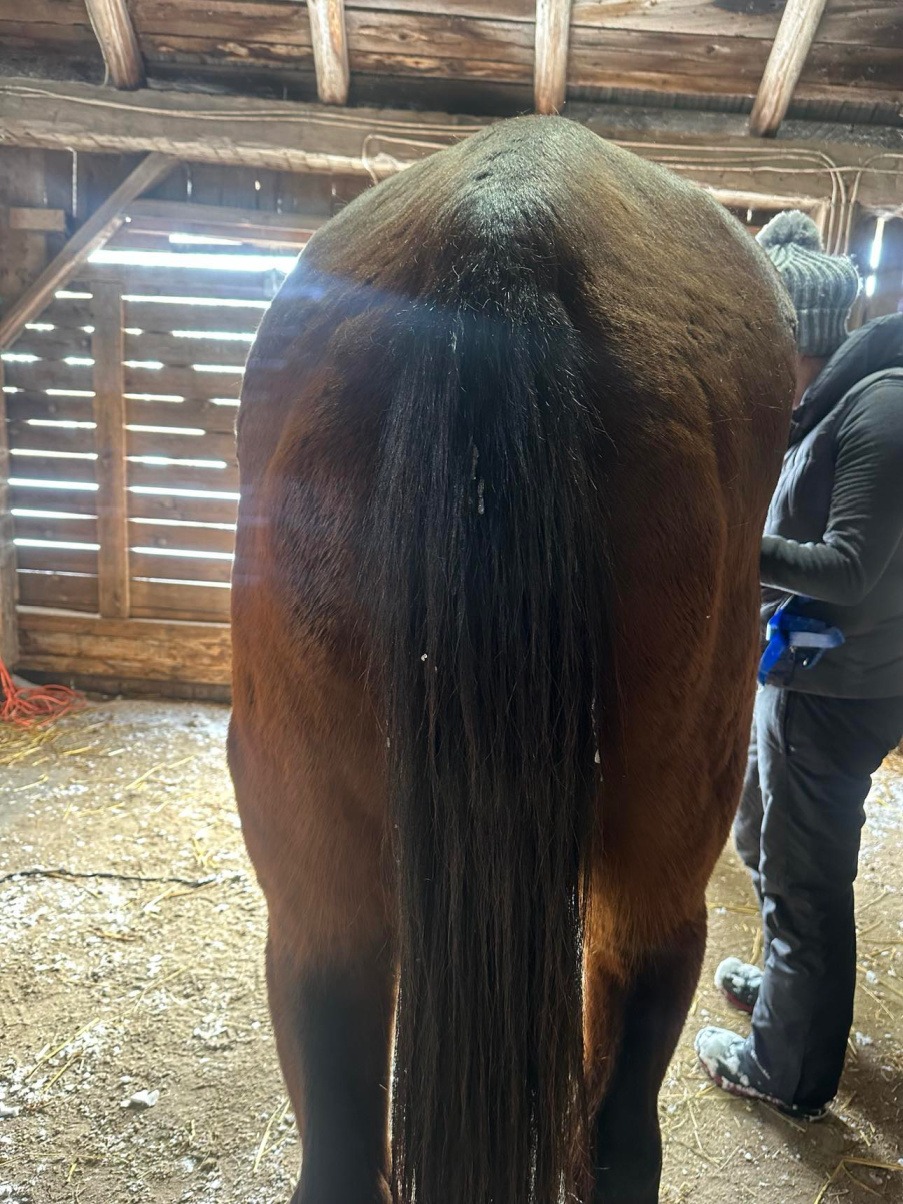
Pureform Olympia (standardbred / tattooed/ mare / 17 years old / issues with back legs/ DSLD/ had shoes on when relinquished but farrier says her feet haven’t been done in 8-9 months – her feet were of course after that long without care horribly overgrown).
NOTE: Most responsible horse owners have their horses trimmed or reshod every 4 to 6 weeks, and maybe in some cases go 8 weeks. Pureform Olympia’s feet were not trimmed or reshod in 8 to 9 months which is especially concerning as by Stephanie’s own admission Pureform Olympia is thought to have DSLD.
Studies show regular…
Therapeutic shoeing can help support the affected limbs of a horse with DSLD. It is “recommended to find a farrier experienced in trimming and shoeing DSLD horses.
Eggbar shoes or shoes with extended heels can provide fetlock support. When DSLD is diagnosed at an advanced stage, high wedge heels can offer relief. If the horse begins to feel better, the height of the wedge is gradually brought back to normal.
The recommendation is to consult with a farrier who has experience with DSLD.
Anecdotal reports suggest keeping your horse barefoot with correct trimming can be more effective for decreasing loading stress on compromised connective tissue.
Again, we ask does this look like a horse who has been well cared for?
Keep in mind there are still 13 horses in the ‘care’ of Stephanie Redlick.
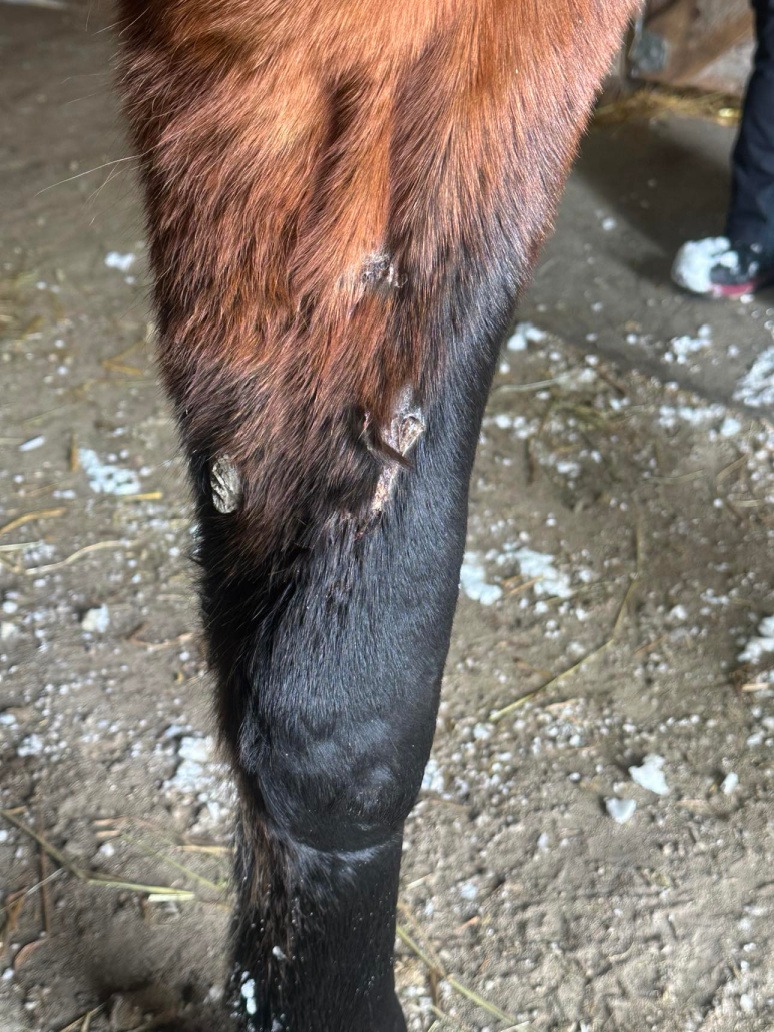
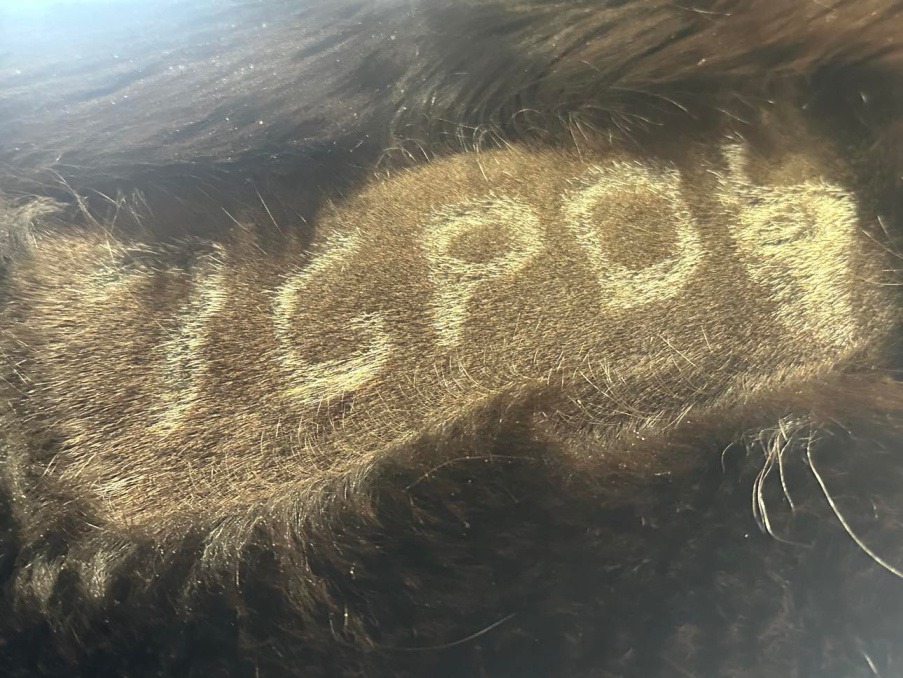

The team at https://horserescuefund.org has begun raising funds to support the Mitchell family in caring for the 4 emaciated horses they convinced Stephanie Redlick to relinquish.
[UPDATE Feb. 17, 2025: Despite a carefully planned and meticulously followed treatment protocol one of the four -- Seattle Sunrise -- was euthanized on the advice of a veterinarian.]
Providing these horses with veterinary care, prescriptions, specialized nutrition and farrier services has already been costly.
Horse Rescue Fund | 2467863 Alberta Society
is a registered foundation at the federal level with the
Canada Revenue Agency and as such, can issue receipts for donations.
You can confirm HRF's official status here.
Business/Registration number: 798022307 RR 0001
Contact members of the press, especially those who have a history of writing about animal welfare-related cases. Share this link - https://banhorseslaughter.com/stephanie-redlick -- it's been set up specifically to not only raise funds but also awareness with the public and the press.
Share our posts and website on your social media accounts and forward emails. What's that? You're not on our email list? Scroll down.
Pictures and videos on this page are courtesy of Summer Secord, Crystal Mitchell and Celia Carletti.
Press contact: marie@banhorseslaughter.com or phone: 250 801 8231
The page you requested could not be found. Try refining your search, or use the navigation above to locate the post.

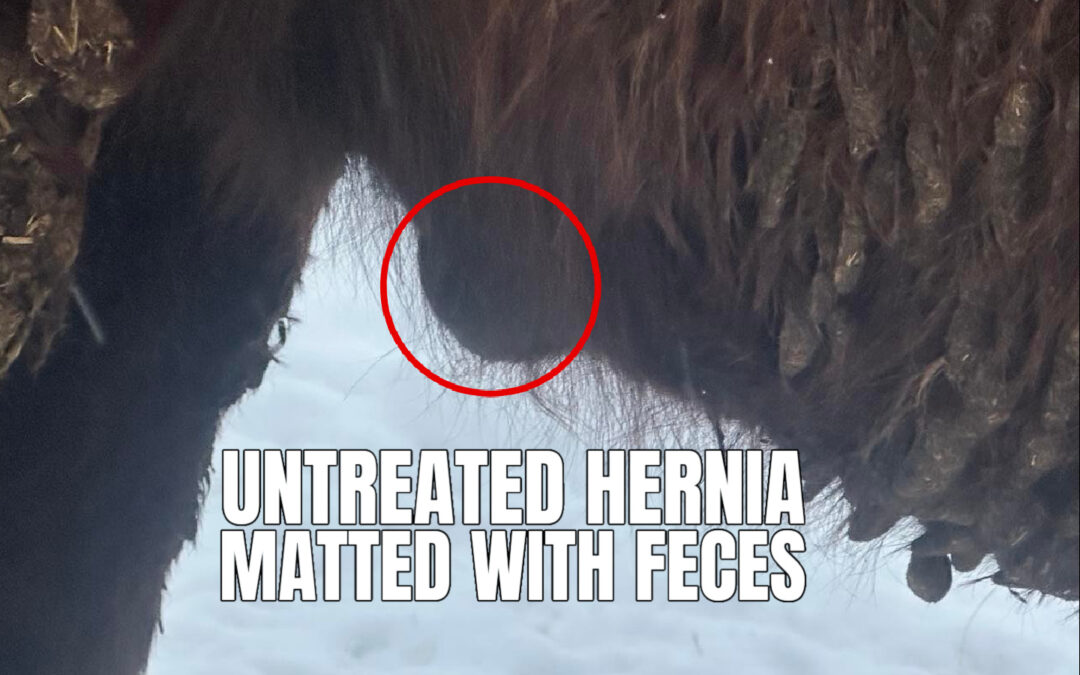
This situation highlights both the cruelty some humans are capable of and the compassion of those who choose to step up, take action and show kindness.
We spoke with Summer Secord and her mother, Crystal Mitchell after Jim Horne reached out to them regarding a lack of care that resulted in the death of a foal and the poor condition of horses in the ‘care’ of Stephanie Redlick – along with a lack of water and feed – he had seen. [Read about Jim’s experience here.]
Stephanie Redlick relinquished 4 horses of 17 she owned and was holding on a leased property in Oro-Medonte, Ontario, Canada to Summer Secord and Crystal Mitchell. We are grateful that Summer, Crystal along with Celia Carletti have carefully documented what they witnessed at the property and the condition each of the horses were in when relinquished.
It’s important to note that 13 horses remain in the ‘care’ of Stephanie Redlick. Please scroll down for how you can help remedy this situation.

These pictures are of one of four horses relinquished to Summer Secord and Crystal Mitchell by Stephanie Redlick. Those are feces caked on her sides and belly. Please note the overgrown hooves and hernia.
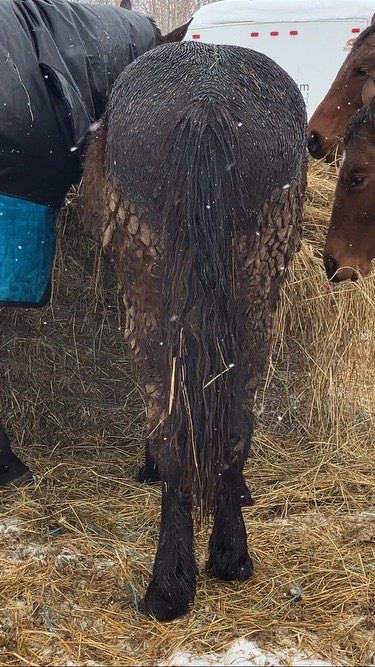
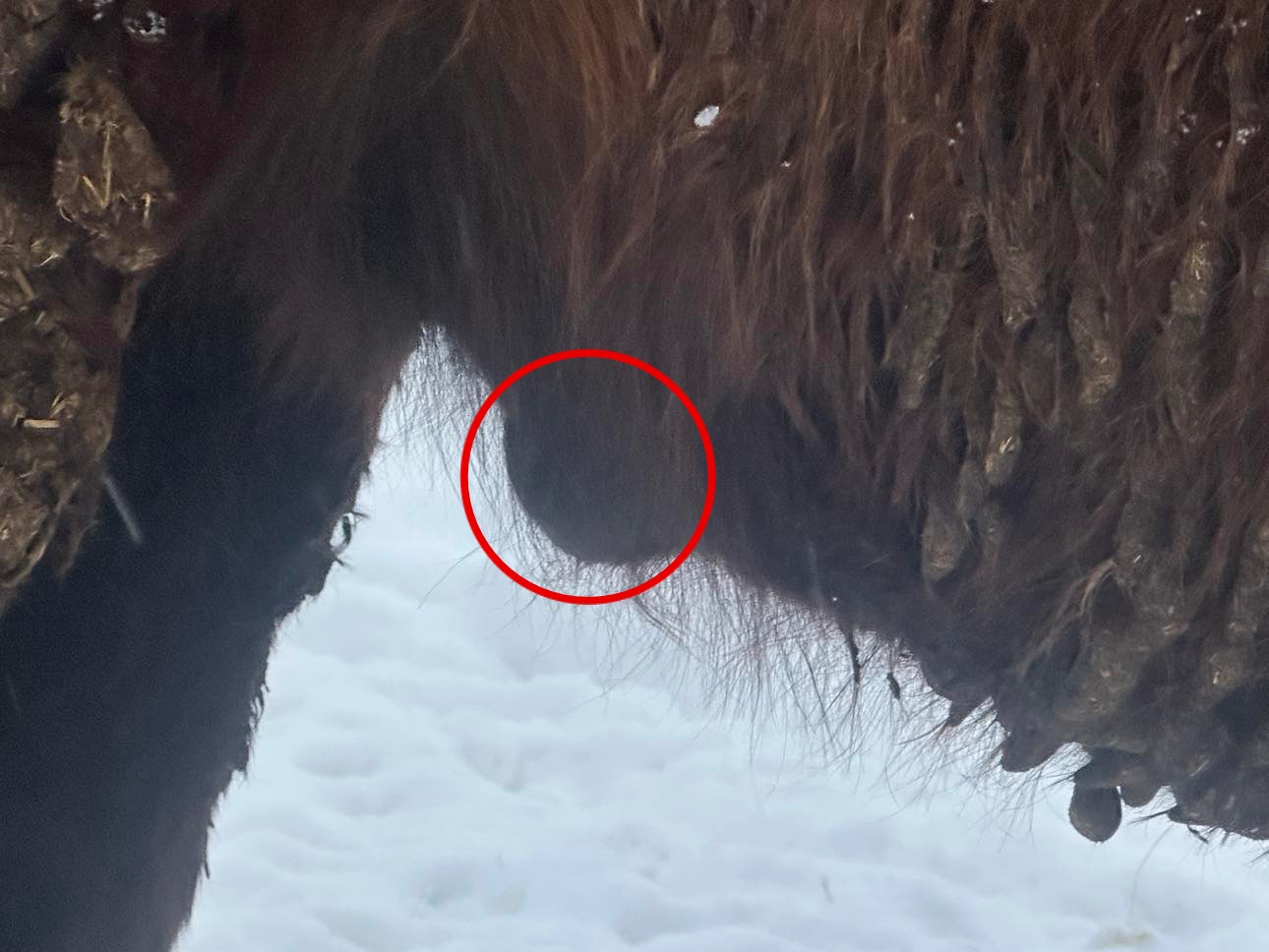
Xena (mare / draft cross / said to be Friesian x Percheron / has hernia / covered in cow feces / unhandled, scared, overgrown neglected feet / she is in pain and kicks when you try and touch her where the cow feces are packed onto her). Like the other horses, she is not only underweight but also dehydrated.
Approximately 18 months old.
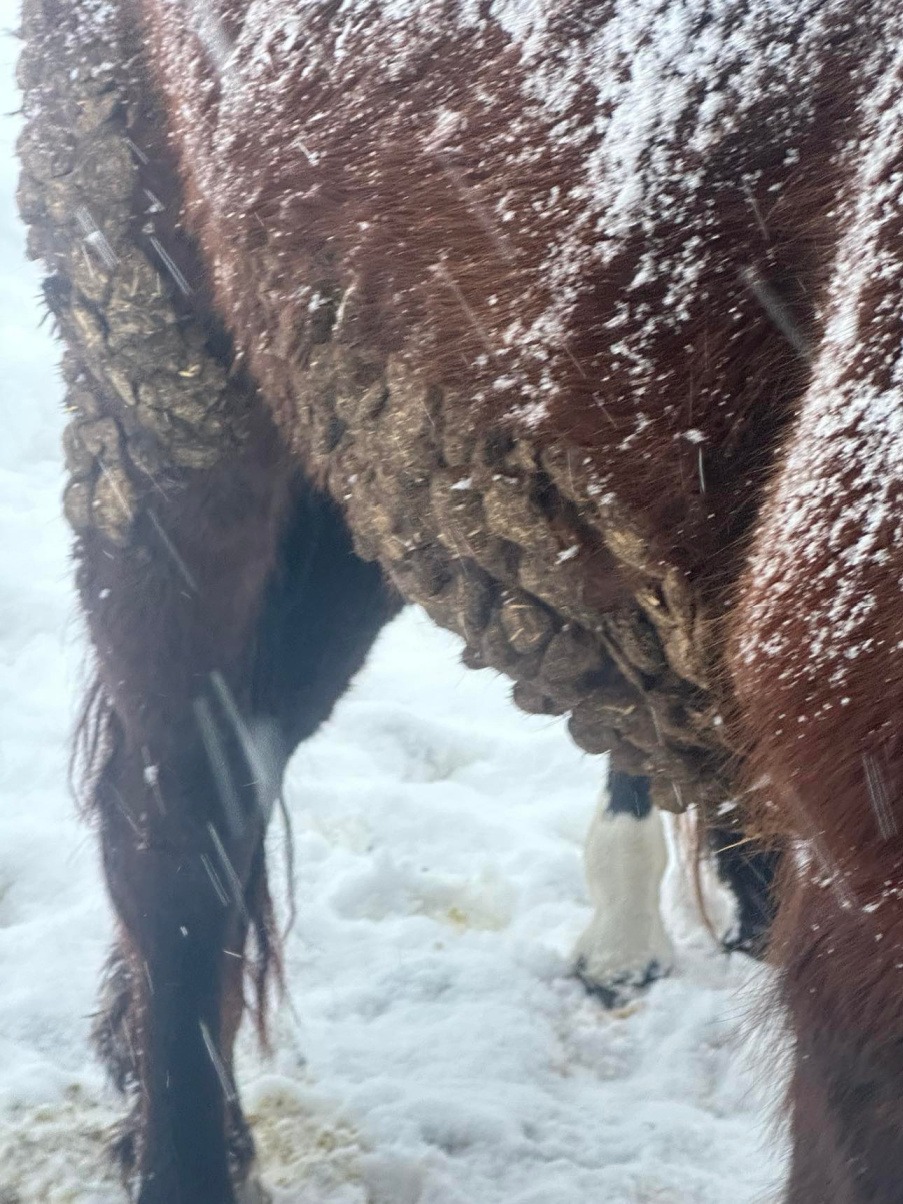
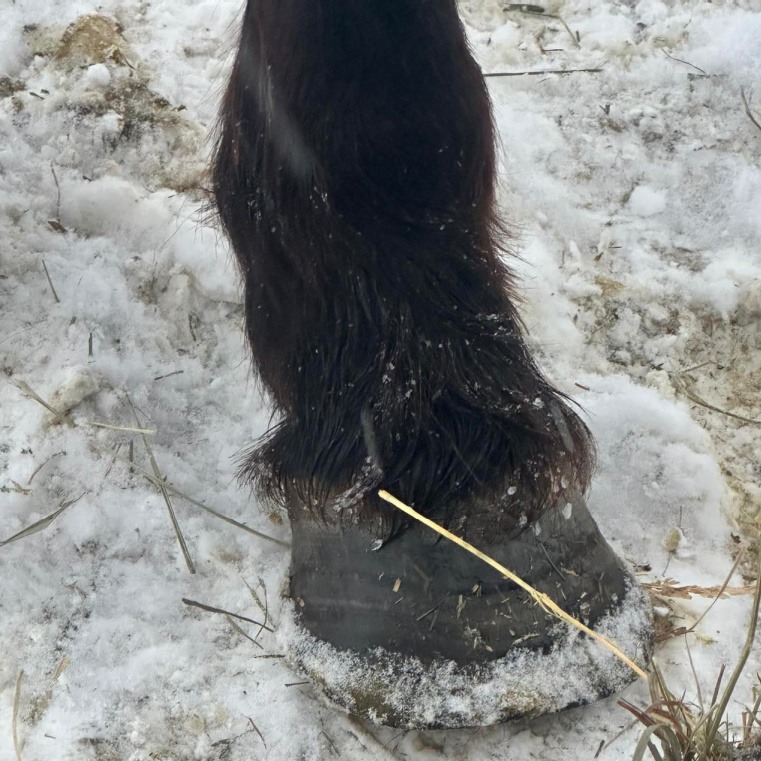
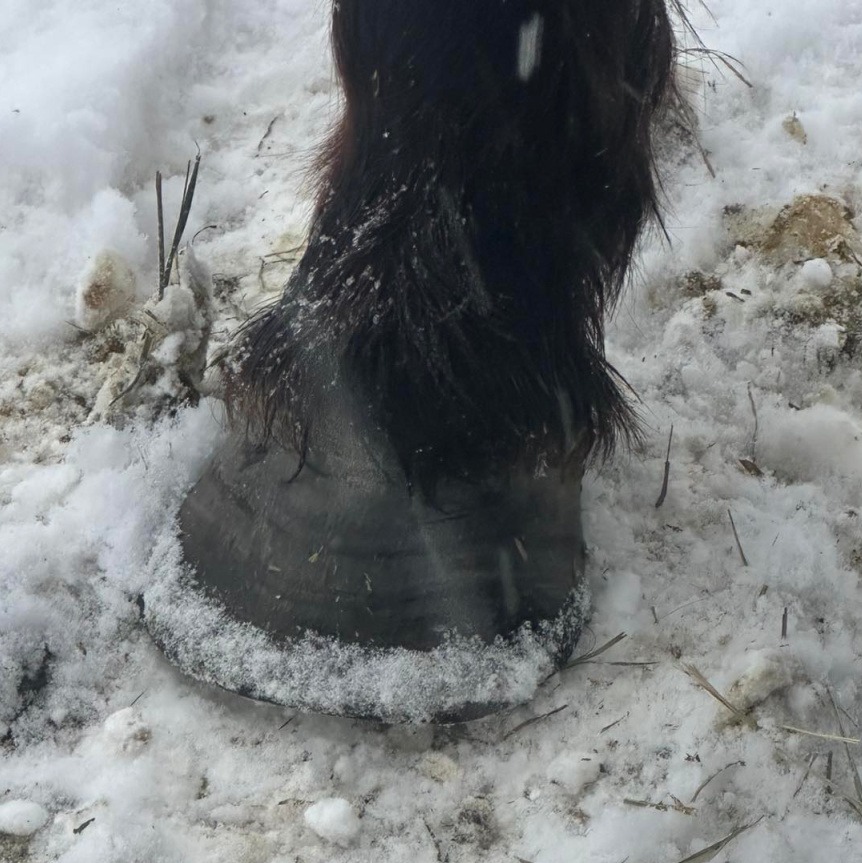

The team at https://horserescuefund.org has begun raising funds to support the Mitchell family in caring for the 4 emaciated horses they convinced Stephanie Redlick to relinquish.
[UPDATE Feb. 17, 2025: Despite a carefully planned and meticulously followed treatment protocol one of the four -- Seattle Sunrise -- was euthanized on the advice of a veterinarian.]
Providing these horses with veterinary care, prescriptions, specialized nutrition and farrier services has already been costly.
Horse Rescue Fund | 2467863 Alberta Society
is a registered foundation at the federal level with the
Canada Revenue Agency and as such, can issue receipts for donations.
You can confirm HRF's official status here.
Business/Registration number: 798022307 RR 0001
Contact members of the press, especially those who have a history of writing about animal welfare-related cases. Share this link - https://banhorseslaughter.com/stephanie-redlick -- it's been set up specifically to not only raise funds but also awareness with the public and the press.
Share our posts and website on your social media accounts and forward emails. What's that? You're not on our email list? Scroll down.
Pictures and videos on this page are courtesy of Summer Secord, Crystal Mitchell and Celia Carletti.
Press contact: marie@banhorseslaughter.com or phone: 250 801 8231
The page you requested could not be found. Try refining your search, or use the navigation above to locate the post.

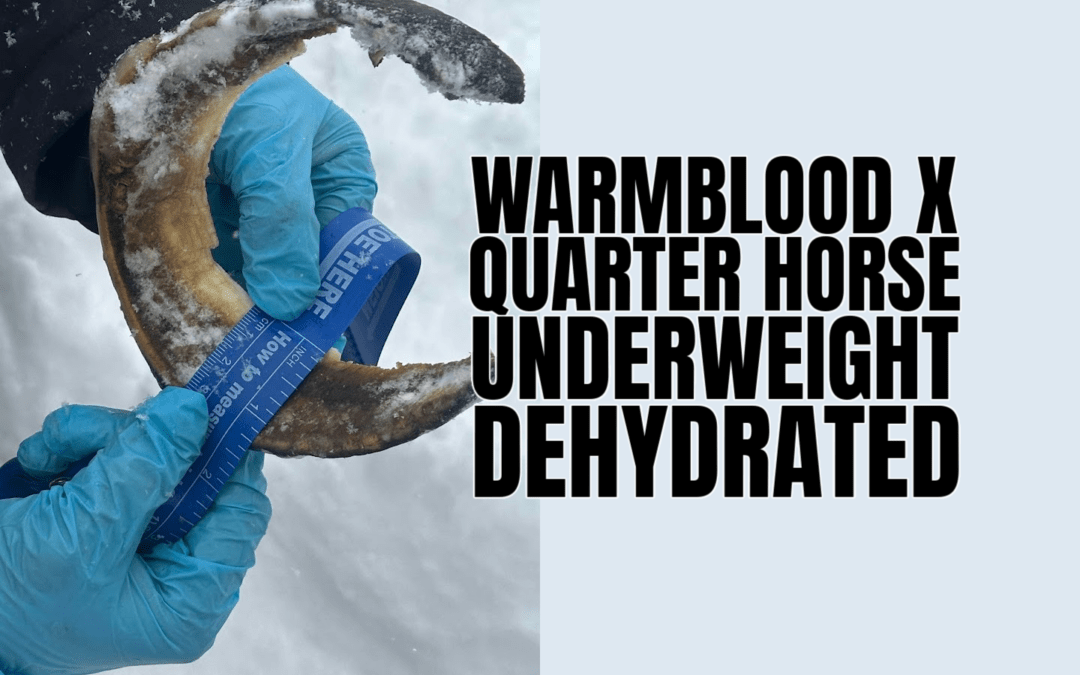
We spoke with Summer Secord and her mother, Crystal Mitchell after Jim Horne reached out to them regarding a lack of care that resulted in the death of a foal and the poor condition of horses in the ‘care’ of Stephanie Redlick – along with a lack of water and feed – he had seen. [Read about Jim’s experience here.]
Stephanie Redlick relinquished 4 horses of 17 she owned and was holding on a leased property in Oro-Medonte, Ontario, Canada to Summer Secord and Crystal Mitchell. We are grateful that Summer, Crystal along with Celia Carletti have carefully documented what they witnessed at the property and the condition each of the horses were in when relinquished.
This situation highlights both the cruelty some humans are capable of and the compassion of those who choose to step up, take action and show kindness.
P.S. It’s important to note that 13 horses remain in the ‘care’ of Stephanie Redlick. Please scroll down for how you can help remedy this situation.
The following pictures are of one of four horses relinquished to Summer Secord and Crystal Mitchell by Stephanie Redlick.
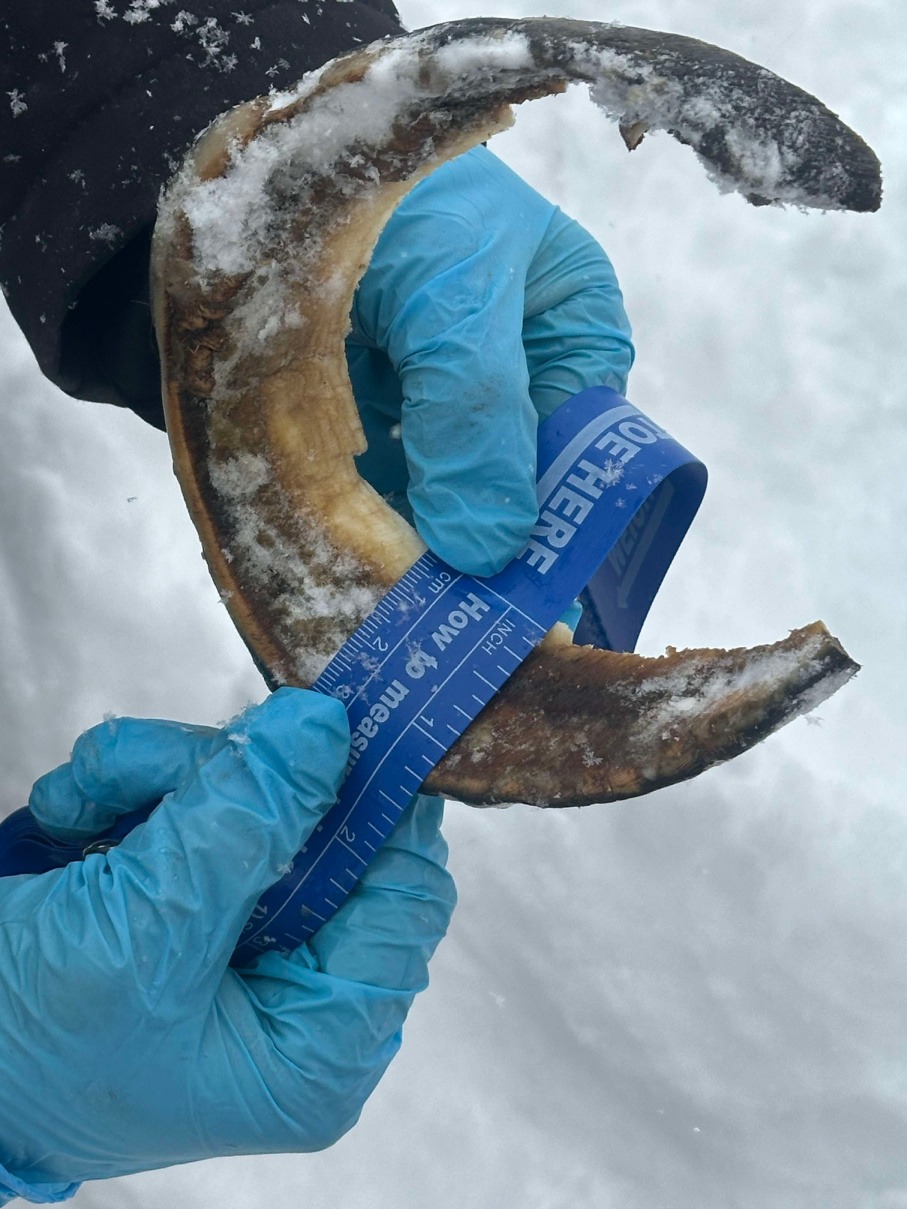
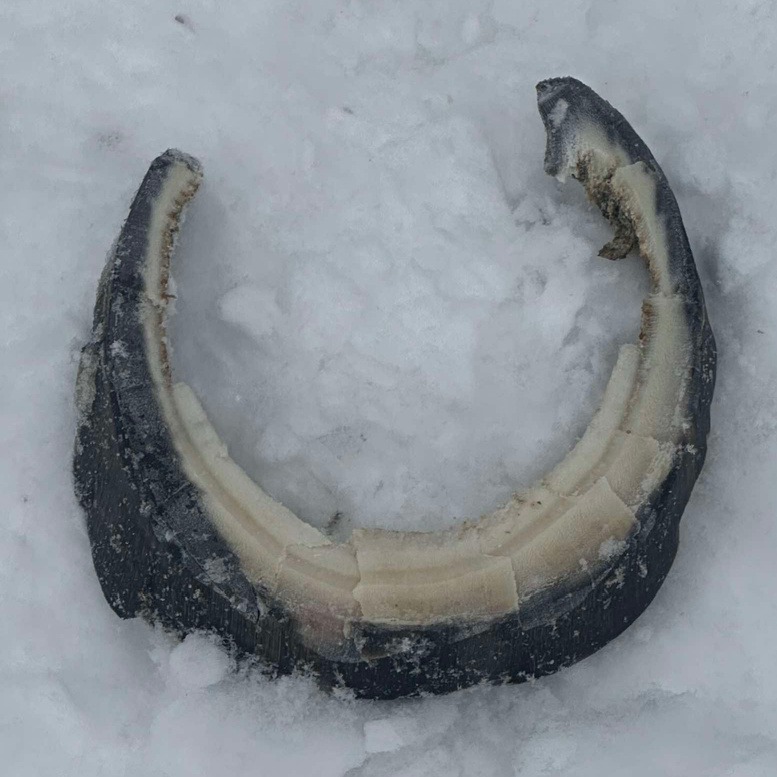
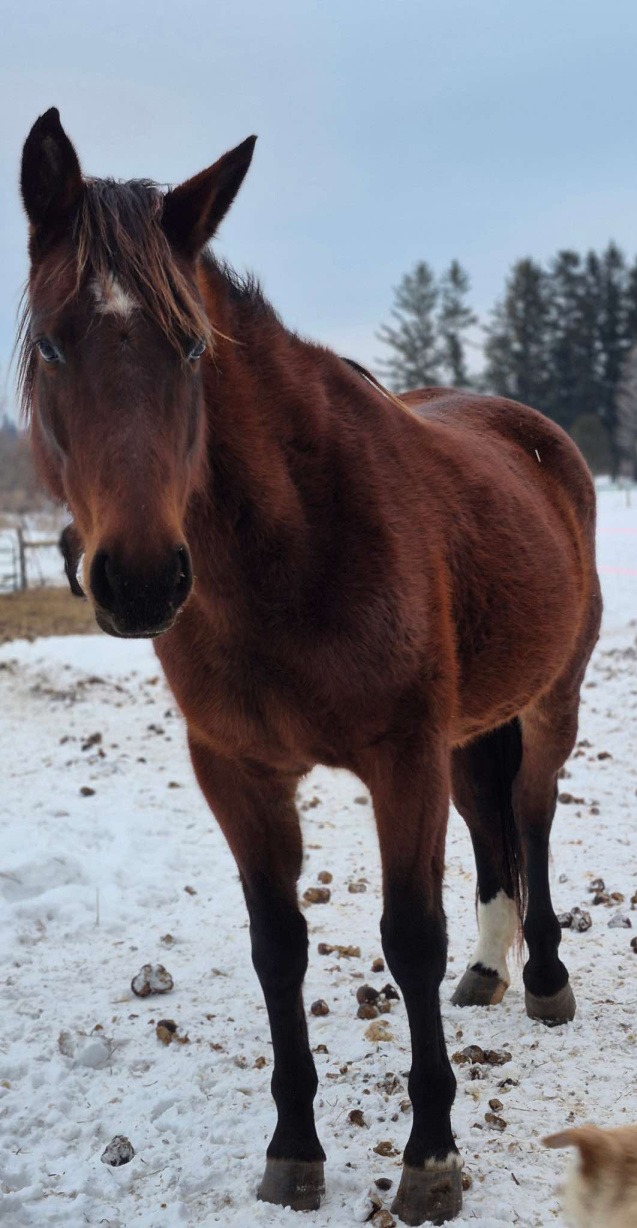

The team at https://horserescuefund.org has begun raising funds to support the Mitchell family in caring for the 4 emaciated horses they convinced Stephanie Redlick to relinquish.
[UPDATE Feb. 17, 2025: Despite a carefully planned and meticulously followed treatment protocol one of the four -- Seattle Sunrise -- was euthanized on the advice of a veterinarian.]
Providing these horses with veterinary care, prescriptions, specialized nutrition and farrier services has already been costly.
Horse Rescue Fund | 2467863 Alberta Society
is a registered foundation at the federal level with the
Canada Revenue Agency and as such, can issue receipts for donations.
You can confirm HRF's official status here.
Business/Registration number: 798022307 RR 0001
Contact members of the press, especially those who have a history of writing about animal welfare-related cases. Share this link - https://banhorseslaughter.com/stephanie-redlick -- it's been set up specifically to not only raise funds but also awareness with the public and the press.
Share our posts and website on your social media accounts and forward emails. What's that? You're not on our email list? Scroll down.
Pictures and videos on this page are courtesy of Summer Secord, Crystal Mitchell and Celia Carletti.
Press contact: marie@banhorseslaughter.com or phone: 250 801 8231
The page you requested could not be found. Try refining your search, or use the navigation above to locate the post.

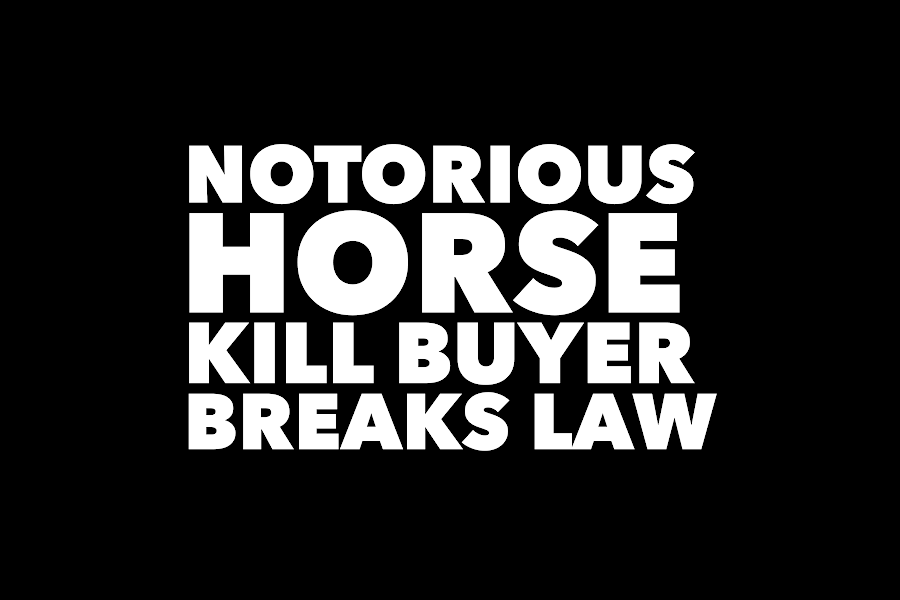
On December 13, 2023, New York Governor Kathy Hochul signed bills A5109/S2163B into law, banning the slaughter of horses throughout the state of New York and making it illegal for any entity to transport horses in or through the state of New York if the horses are intended to be slaughtered for human or animal consumption.
The law went into effect in April of 2024 and we have to say that we wondered how officials were going to monitor the purpose of horses being exported through New York borders with Canada.
Well it appears that Government officials have not picked up on the continuation of horse exports for slaughter via the state of New York but thankfully Animals’ Angels USA has.
Animals’ Angels USA has DOCUMENTED proof that between April and September 2024, Pennsylvania kill buyer Bruce Rotz shipped over 200 horses to slaughter in Canada, using the Champlain border crossing in New York.
Animals’ Angels USA have provided this evidence to the NY Attorney General and the NY Commissioner of AG, asking them to launch an official investigation into the matter.
Rotz’s business could face a penalty of $2,500 for each horse he transported to slaughter, which means he could be facing fines totaling $500,000 or more for these violations.
As one of the largest shippers on the East Coast, Rotz routinely acquires horses at auctions in Pennsylvania, New York, and Tennessee before callously shipping the animals to their deaths at the Viande Richelieu horse slaughter plant in Quebec, Canada.
Over the years, Rotz has committed a long list of offenses against innocent horses.
A small selection of his evil deeds include:
Transporting a group of horses to slaughter in conditions that resulted in thirty of the horses being burned alive.
Overloading a trailer of horses purchased at auction, resulting in the death of ten horses after the vehicle crashed.
Shipping blind and injured horses to slaughter.
Locking four distressed, sick, emaciated pigs in a barn for days without any access to food or water, while withholding pain medicine.
Rotz pled guilty to aggravated animal cruelty and incurred a $100 fine and 12-months of probation with the stipulation that he refrain from neglecting or abusing any animal in his care.
You can add your voice to those calling for Rotz to be held to account for his flagrant violations of the new anti-slaughter law by contacting Letitia James, the New York Attorney General, Commissioner Ball (NY Department of Agriculture & Markets and Kathy Hochul, the Governor of the State of New York.
PLEASE take a few minutes right now to call, email, or write those who can hold Bruce Rotz accountable.
Tell government officials how passionately you feel about this law and its enforcement, and make sure to ask them to investigate Bruce Rotz and hold him accountable.
Please also join us in sharing this information and asking others to reach out too.
It is especially important to reach out to residents of New York State AND to ask them to join you in taking action.
Please investigate horse kill buyer Bruce Rotz and hold him accountable for transporting horses through New York State and into Quebec, Canada for the purpose of slaughter.
New York Attorney General Letitia James
1-800-771-7755
Easy to fill out form:
New York Department of Agriculture and Markets
Commissioner Richard Ball
(518) 457-2771
Commissioner@agriculture.ny.gov
New York Governor Kathy Hochul
1-518-474-8390
Easy to fill out form:

P.S. Thank you to Jo-anne, Patti, Michele, Lindsay and others who brought this to our attention!
April 2025:
We have the opportunity to buy a mare and newborn foal who are sitting on a kill lot who otherwise will be slaughtered at the Bouvry plant in Alberta.
Of course, the initial expense of buying horses from First Nations (or kill buyers) so they are not shipped to slaughter is not the biggest nut to crack. Hay, feed, vetting, farrier, and other costs are needed in addition to funds to initially purchase horses to prevent them from being shipped to slaughter - or being left to languish in pens awaiting the same fate.
We always hate to ask but if you are able to help we would love to be able to purchase these two...
Again, we can’t save them all but with your help we can save these 2.

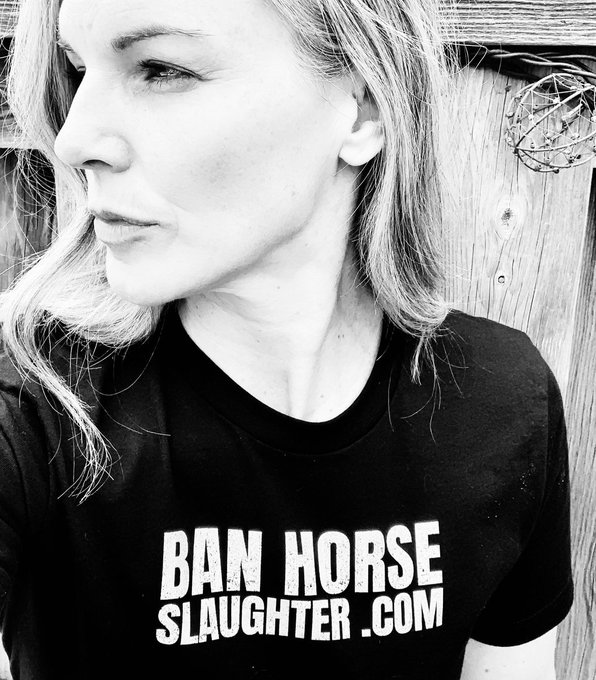
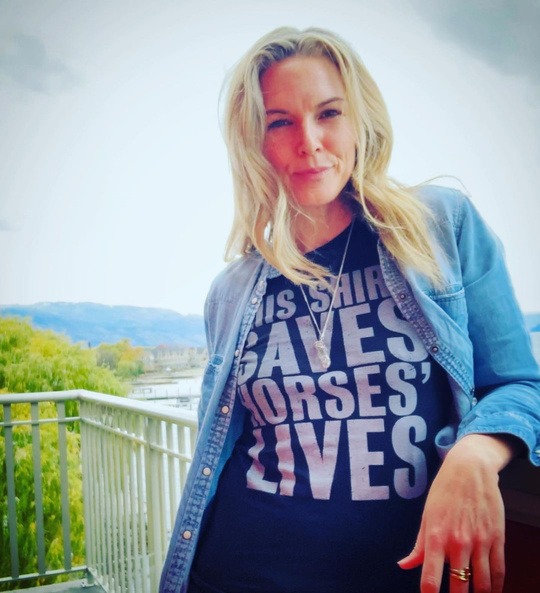
The page you requested could not be found. Try refining your search, or use the navigation above to locate the post.

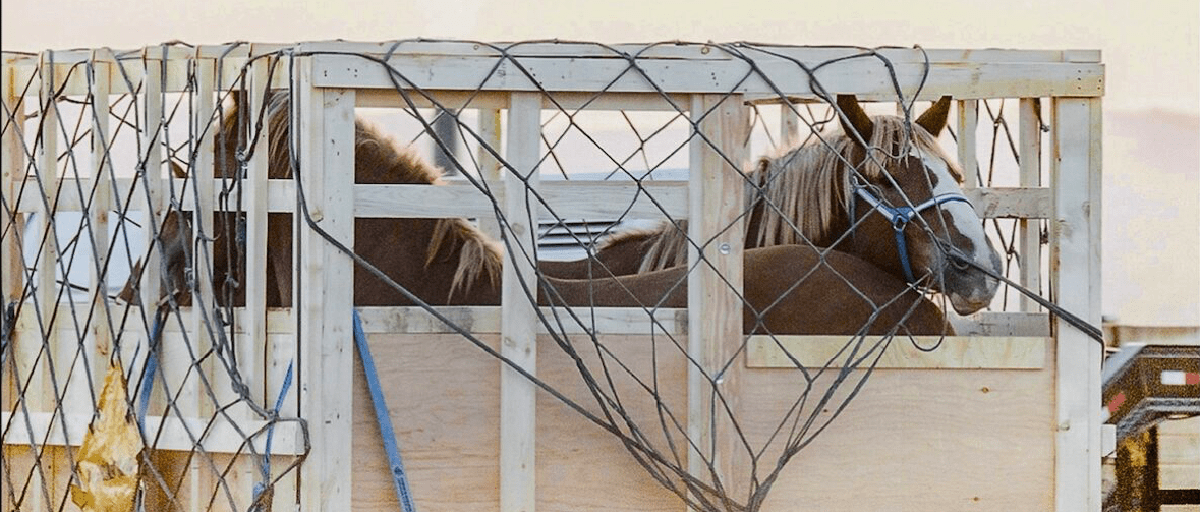
The Honourable Lawrence MacAulay, the current Minister of Agriculture and Agri-Food, has the power to end the inhumane export of horses by air for slaughter by enacting a regulatory amendment.
Help spread the word by sharing this email campaign with friends and family! You can also support the cause by donating—your contribution will help fund advertising efforts to raise awareness and push for change. Every action makes a difference!
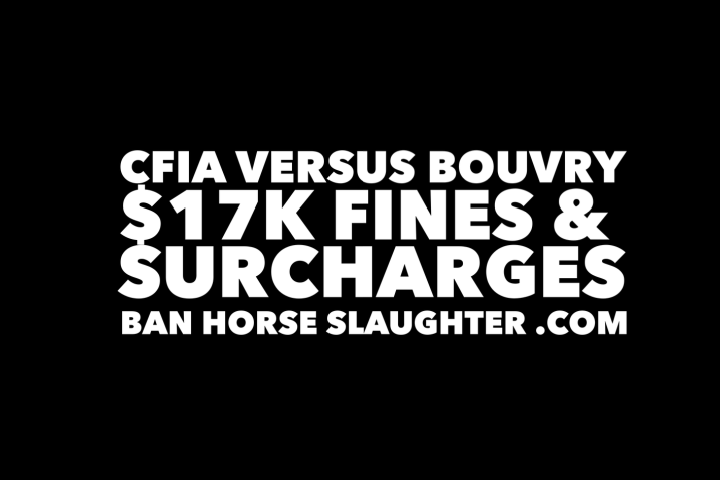
A “guilty plea of sorts” today for Bouvry.
Instead of going through with scheduled court dates, Bouvry will pay…
$17,000.00 in fines and surcharges.
Plus a small fortune they would’ve likely dished out for Calgary counsel.
January 6, 2025:
We continue to hear that Bouvry in Fort MacLeod has closed.
That rumour, a misinterpretation of a post by a well known and much respected by us group persists. The main FEEDLOT – which is not adjacent to the plant has been closed for many months now.
The plant continues to slaughter horses almost every week.
We know that the plant has been up for sale, several times we’ve heard that the plant has sold, or that “only one signature was needed for the deal to be done”.
Those rumours have persisted since late 2022, increasing dramatically since the end of 2023.
We do NOT think that the plant has sold and even if it has – horses are being slaughtered – again – weekly.
With very special thanks to a lawyer in Alberta who wishes to remain anonymous we do know that Bouvry initially plead not guilty to charges laid against them by the Canadian Food Inspection Agency.
Charges were laid July 17th, 2023 based on activities by Bouvry Exports Calgary, LTD, in 2021.
We describe the charges as animal cruelty and health food safety related.
You can learn more about the charges here.
Thanks to the same lawyer we know that the trial dates were set for January 6 to 17, 2025 in Fort MacLeod, Alberta.
But again – as far as we know – Bouvry appeared today, January 6th and will pay fines and surcharges of $17,000.
April 2025:
We have the opportunity to buy a mare and newborn foal who are sitting on a kill lot who otherwise will be slaughtered at the Bouvry plant in Alberta.
Of course, the initial expense of buying horses from First Nations (or kill buyers) so they are not shipped to slaughter is not the biggest nut to crack. Hay, feed, vetting, farrier, and other costs are needed in addition to funds to initially purchase horses to prevent them from being shipped to slaughter - or being left to languish in pens awaiting the same fate.
We always hate to ask but if you are able to help we would love to be able to purchase these two...
Again, we can’t save them all but with your help we can save these 2.



The page you requested could not be found. Try refining your search, or use the navigation above to locate the post.


The Honourable Lawrence MacAulay, the current Minister of Agriculture and Agri-Food, has the power to end the inhumane export of horses by air for slaughter by enacting a regulatory amendment.
Help spread the word by sharing this email campaign with friends and family! You can also support the cause by donating—your contribution will help fund advertising efforts to raise awareness and push for change. Every action makes a difference!